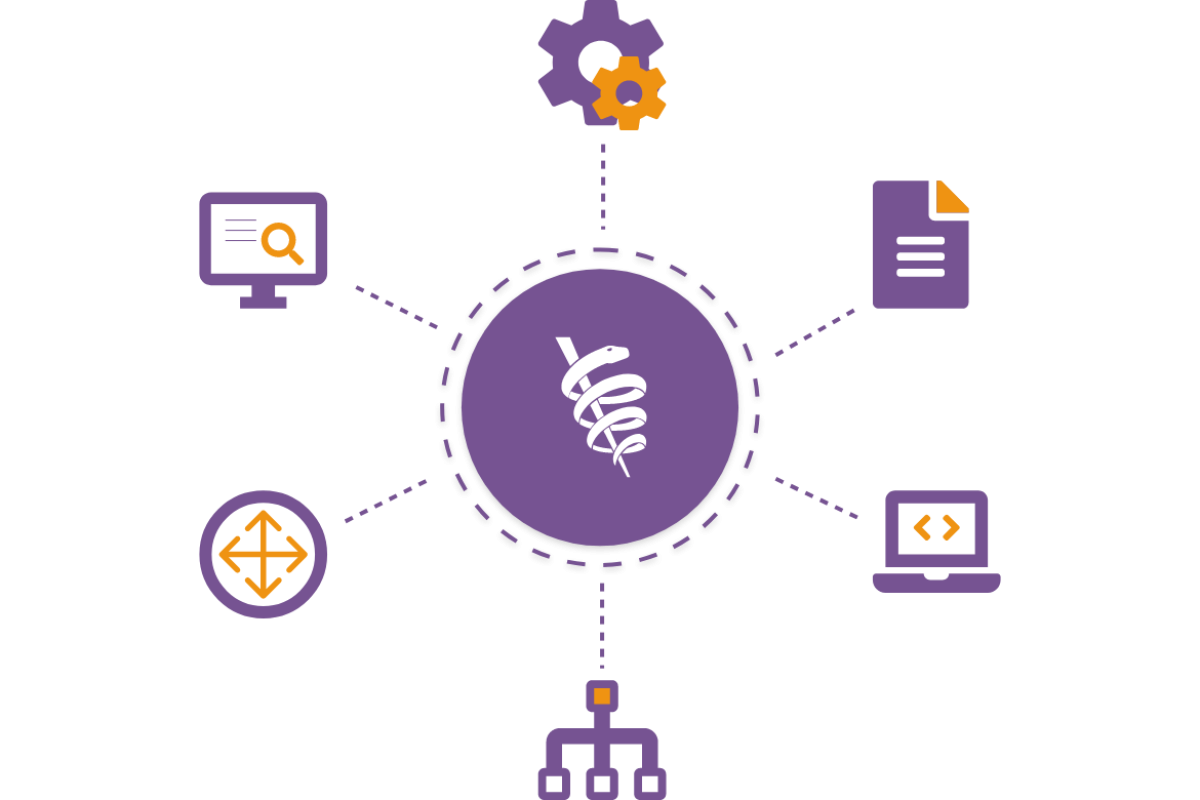Artificial intelligence vs. augmented intelligence
The AMA House of Delegates uses the term augmented intelligence (AI) as a conceptualization of artificial intelligence that focuses on AI’s assistive role, emphasizing that its design enhances human intelligence rather than replaces it.
Principles for AI development, deployment and use
The AMA is committed to ensuring that AI can meet its full potential to advance clinical care and improve clinician well-being. As the number of AI-enabled health care tools continue to grow, it is critical they are designed, developed and deployed in a manner that is ethical, equitable and responsible. The use of AI in health care must be transparent to both physicians and patients.
In addition to medical devices, AI is increasingly used in health care administration or to reduce physician burden, and policy and guidance for both device and non-device use of health care AI is necessary. Recognizing this, the AMA has developed new advocacy principles that builds on current AI policy. These new principles (PDF) address the development, deployment and use of health care AI, with particular emphasis on:
- Health care AI oversight
- When and what to disclose to advance AI transparency
- Generative AI policies and governance
- Physician liability for use of AI-enabled technologies
- AI data privacy and cybersecurity
- Payor use of AI and automated decision-making systems
Physician sentiments on AI
The AMA conducted a comprehensive study (PDF) of over 1,000 physicians’ sentiments towards the use of AI in health care including current use and future motivations for use, key concerns, areas of greatest opportunity and requirements for adoption. The objectives of this research included:
- Capturing the sentiment among practicing physicians regarding the increased usage of AI in health care
- Evaluating AI use cases based on their familiarity, relevance, and usefulness
- Identifying key resources and areas of need for physicians to consider implementation of AI tools to their practice
In general, physicians are enthusiastic about the potential of AI in health care, with 65% seeing at least some advantage to the use of AI in their practice. However, there are still key concerns as physicians continue to explore how these tools will impact their practices. Resources and research, including clinical evidence, will be critical to helping physicians adopt AI tools.
Featured updates
AMA partners with technology and health care leaders to bring physicians critical insights on AI’s potential applications and ensure that physicians have a voice in shaping AI’s role in medicine.
- To develop actionable guidance for AI in health care, the AMA reviewed literature on the challenges health care AI poses and reflected on existing guidance. These findings are published in a new paper in Journal of Medical Systems: Trustworthy Augmented Intelligence in Health Care.
- The AMA Intelligent Platform’s CPT® Developer Program allows developers to access the latest content and resources. Access the Developer Portal on the AMA Intelligent Platform.
- Kimberly Lomis, MD, AMA vice president of undergraduate medical innovations, co-authors a discussion paper on Artificial Intelligence for Health Professions Educators in NAM Perspectives.
CPT® and AI
The current CPT® code set drives communication across health care by enabling the seamless processing and advanced analytics for medical procedures and services.
AMA offers several resources to provide guidance on the updated CPT® code set for classifying various AI applications as well as advisory expertise through the Digital Medicine Payment Advisory Group (DMPAG). DMPAG identifies barriers to digital medicine adoption and proposes comprehensive solutions on coding, payment, coverage and more.
Stay up-to-date on the criteria for CPT® codes, access applications and read frequently asked questions.

CPT® Appendix S: AI taxonomy for medical services & procedures

DMPAG: Creating a pathway for integration of digital medicine

CPT® Developer Program on the AMA Intelligent Platform
Latest AI news
Learn how AI is being used in health care as the medical community’s understanding of the application grows. AMA articles focus on ways coding content advances to reflect the emergence of digital health and diagnostics, and how AI should be incorporated into physician training.
Stay up-to-date on information about health care AI, including the latest news, trends and AMA statements.

